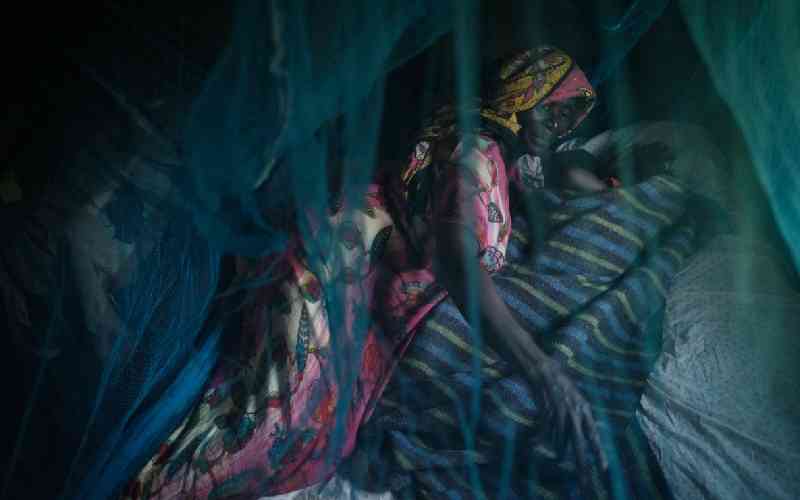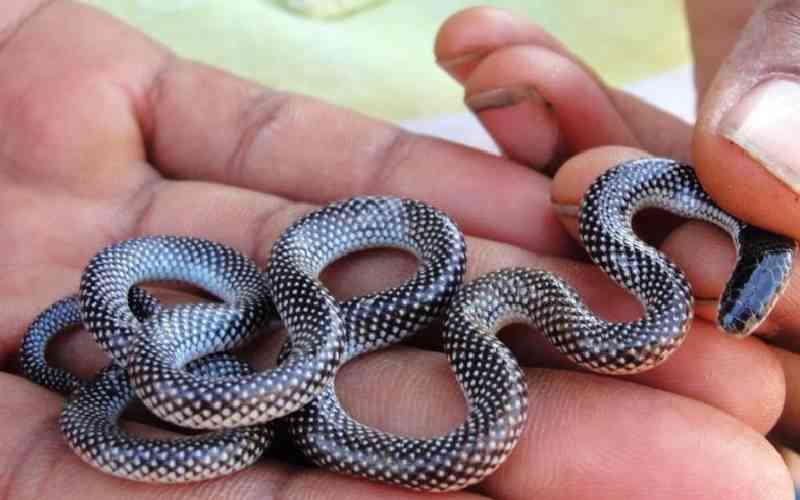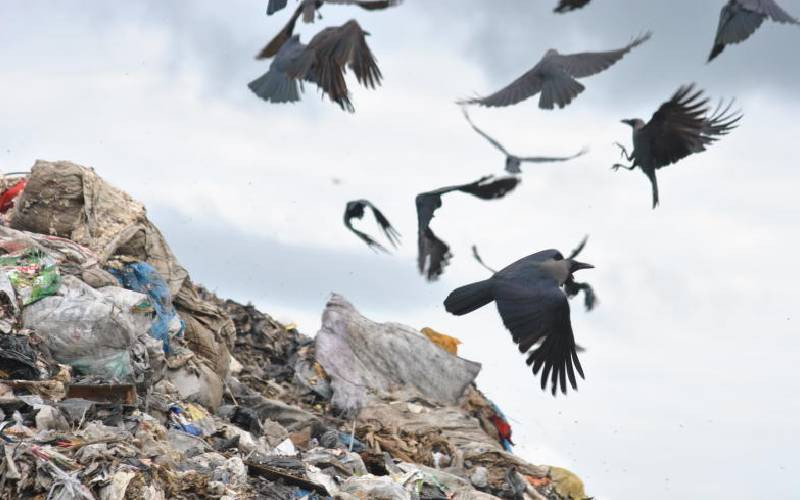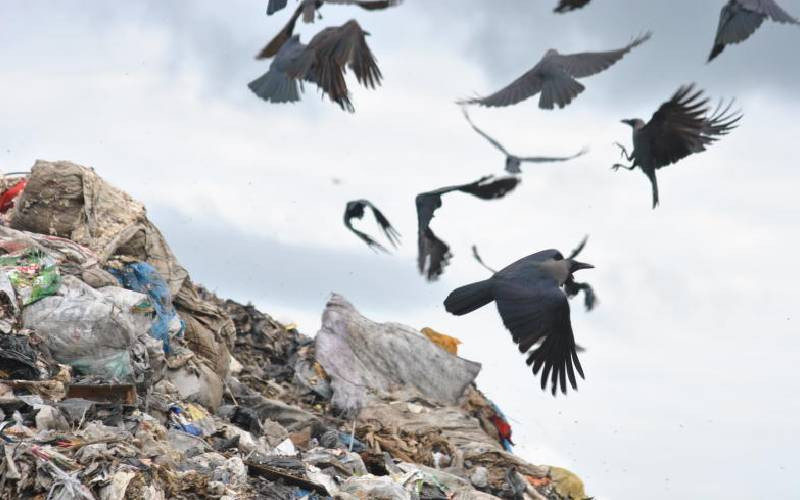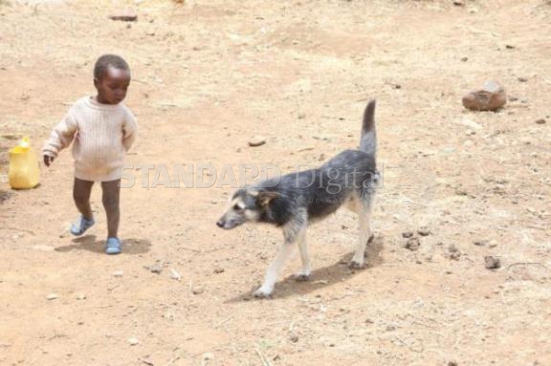
A family is counting themselves lucky after surviving exposure to rabies following a vicious hyena attack. The Lengoloyas have also welcomed twins as newest members of the family after the incident that nearly turned tragic last year.
The seven-kilometre journey to Maundu-Ni-Meri village from Rumuruti town centre in Laikipia County sends bellows of dust but the anxiety has left this two-manyatta homestead that raised public attention last year after a hyena attack.
Namaita Lengoloya, 38, bravely and single-handedly fought off a voracious hyena that had attacked her and four children as they slept in the manyatta.
Yet even after the hyena was killed, Namaita and her four children, then aged between 10 and 1 years, endured an overwhelming medical journey of fighting exposure to rabies that kills 2,000 Kenyans annually.
A laboratory microscopy examination of the hyena’s brains at Central Veterinary laboratory in Kabete revealed that it had been infected with rabies. As the debate rages whether the animal had contracted the disease from domestic dogs or wildlife, the threat on human beings is real as Kenya joins the globe in marking the World Rabies Day on Monday.
When The Standard on Saturday visited the family this week, last year’s events have been replaced with joyful banter as they alternately cuddle twins born four weeks ago. Little Barishoe, then aged one, was the first victim the rabid hyena pounced on.
“He was nearest to the door when the hyena sprang into the house and it lifted him up scratching his head but he managed to escape and crawl out. The hyena was now after Tipati and the 10-year-old Supukia,” Naimaita narrates.
Multiple injuries
The patriarch Lese Lengoloya narrated events of the night that nearly cost him his entire family.
“I was working as a guard at a nearby Chinese construction company site doing the Rumuruti-Mararal road that evening when I received information that my family had been attacked by a hyena,” said Lengoloya adding that he ran home to check on his wife and four children whom he had left safely indoors earlier that evening.
“When I arrived, my wife had multiple injuries on her face, thighs, legs and back. Her heroic efforts to save our children amazed me but we needed to get all of them to the nearest health centre,” said Lengoloya.
That his wife and children had been exposed to rabies was a diagnosis that Lengoloya had not understood at the time, and neither did he know of its magnitude until a talk with health officials revealed they were sourcing emergency preventive treatment from Nairobi to prevent Namaita and the children from coming down with the deadly disease, rabies.
When the little ones were discharged a fortnight later, the battle to full recovery for their mother Namaita would continue for a further three months before she would recover from the bite wounds.
The family was to receive an array of injections at Nyahururu District hospital to ensure they were free of the virus causing rabies disease. And when the preventive consignment arrived after a frantic search for the vaccines in the region’s health facilities and Nairobi, it would be at a cost Sh15,000 per dose for each of the seven exposed members of his family, an amount they could not raise. Luckily, the treatment was offered free.
And with about 2,000 Kenyans dying from rabies annually, Laikipia West sub-county veterinary officer Peter Mwai says the effectiveness of ridding Kenya of this neglected disease lies in vaccinating the domestic dog.
“Annual vaccination of a dog only costs Sh50 and a certificate is issued indicating when the next jab is due,” said Dr Mwai.
County disease surveillance coordinator George Macharia says public awareness on prevention of rabies needs to be fast-tracked especially in rural areas.
Disease transmitted
The first rabies outbreak in Kenya was in a dog in 1912 in the outskirts of Nairobi and the first case of human rabies documented in a woman from the Lake Victoria basin in 1928.
Rabies, a viral disease transmitted from animals to humans, kills individuals who develop symptoms. The virus inflames the brain and spinal cord at which time the clinical signs become visible before death.
Globally, only one person has survived rabies through miraculous medical procedures that include inducing a coma and the victim having to re-learn everything from talking to walking.
And with this year’s theme, End Rabies Together, the focus is on the rural areas where four out of five deaths resulting from the disease that is largely misunderstood by the public who loosely refer to it as ‘mad dog’ disease.
Human and animal-health experts at the Zoonotic Disease Unit, a collaboration between the Ministry of Health and that of Livestock and development, are confident that mass dog vaccinations targeting 70 per cent of the dog population in each region annually for the next three years, and ensuring access to post-exposure treatment for bite-victims is the formula to rid Kenya of this neglected disease.
According to George Makatae, the assistant chief in charge of Maundu-Ni-Meri village, the community is now keen on vaccinating their dogs and promptly report any scratches or bites by canines.
“I receive at least three or four complaints of dog bites monthly and I ensure that they seek treatment immediately and call the veterinary team to investigate the animal and subsequently vaccinate all other dogs in the area,” said Makatae.
 The Standard Group Plc is a multi-media organization with investments in media platforms spanning newspaper print
operations, television, radio broadcasting, digital and online services. The Standard Group is recognized as a
leading multi-media house in Kenya with a key influence in matters of national and international interest.
The Standard Group Plc is a multi-media organization with investments in media platforms spanning newspaper print
operations, television, radio broadcasting, digital and online services. The Standard Group is recognized as a
leading multi-media house in Kenya with a key influence in matters of national and international interest.



